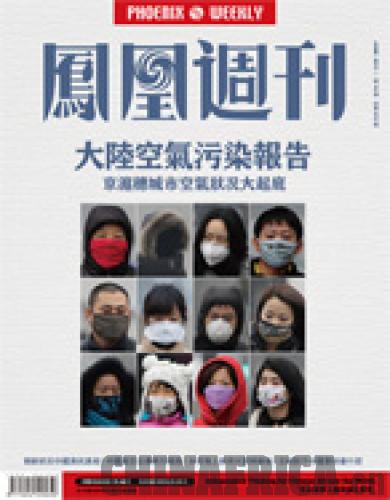| Cultural Relics Appraisal
Oriental Outlook
June 13, 2013
In recent years, cultural relics have become popular among Chinese investors, boosting demand for experts capable of identifying such artworks. Meanwhile, scandals relating to relic appraisals have emerged one after another, with some cultural relics authenticated by recognized experts as genuine turning out to be fake.
Oriental Outlook in this issue reviews major incidents of fraud in appraising cultural relics that have occurred in recent years and examines reasons for experts failing to correctly identify artworks. It also explains how counterfeiters' adoption of modern technologies has made it more difficult to identify fake works through traditional means. However, experts note that the appraisal of cultural relics is currently not a systematic discipline in China, and scientific research in this is insufficient.
To regulate the sector, laws on the auctioning of cultural relics should be tightened, and a systematic standard for identifying relics should be introduced.

An Alternative Option
Lifeweek
June 3, 2013
In recent years, more and more Chinese high school students have forgone China's national college entrance exams to study abroad. At the same time, the number of Chinese students going abroad to attend high school has also risen.
Lifeweek looks at this trend. Parents are now sending their children abroad to attend high school or even middle school to avoid issues they would have to face in the Chinese education system.
By sending their children abroad, parents hope to free their kids from exam-oriented education and allow them to fully develop their aptitudes.
However, many teenagers also find it very difficult to live and attend school abroad as they have to learn a new language, overcome cultural barriers and take care of themselves.
Meanwhile, overseas students' competitive edge over locally-educated graduates in China's job market is decreasing. Parents have to consider whether studying abroad suits their children when making such a decision.
A Fair Exam
People's Daily
June 7, 2013
This issue of the People's Daily is all about education. In China, education is one of the most important priorities for families. The gaokao, or the college entrance examination, which takes place on June 7 and 8 every year, determines whether or not a high school graduate can attend university, which has enormous implications for his or her future. For this reason, it is easy to understand why parents care deeply about the gaokao.
Today, despite multiple channels to success, the process of selecting qualified youth for further education still relies heavily on the gaokao system, which puts all students on equal footing.
To most youngsters from ordinary families, the gaokao is still the most dependable way to secure a good future for themselves through advanced education.

Jointly Combating Air Pollution
Phoenix Weekly
June 4, 2013
This issue of Phoenix Weekly looks at what it will be done to improve Beijing's air quality. To improve the capital city's air, cities like nearby Tianjin and those in neighboring Hebei Province will also need to cut down emissions.
For example, Beijing's sulfur dioxide emissions come mainly from coal burning in winter. However, in summer, sulfate particles still constitute 20 percent of Beijing's PM2.5 - airborne particles measuring less than 2.5 micrometers in diameter. Satellite monitoring shows that these sulfates are mainly emitted in nearby cities.
If Beijing, Tianjin and Hebei Province want to curb air pollution, none of them can solve the problem on their own. If the three do not cooperate with each other, their air pollution problems will never be solved.
Traditional Festival Heritage
Beijing Youth Daily
June 9, 2013
During this year's Dragon Boat Festival, high-priced rice dumplings, a traditional food associated with the holiday, didn't attract as much attention as usual. This year, such gift packages were hard to find at supermarkets and shopping malls. Instead, more reasonably priced packages took center stage.
Traditional festivals are purveyors of Chinese culture and cannot be turned into commercial events.
To maintain the authenticity and traditions of culture requires continuous effort. The Dragon Boat Festival is not only a national holiday, but also a part of China's cultural identity. Chinese society should be sure to prioritize its cultural values above its commercial interests. |